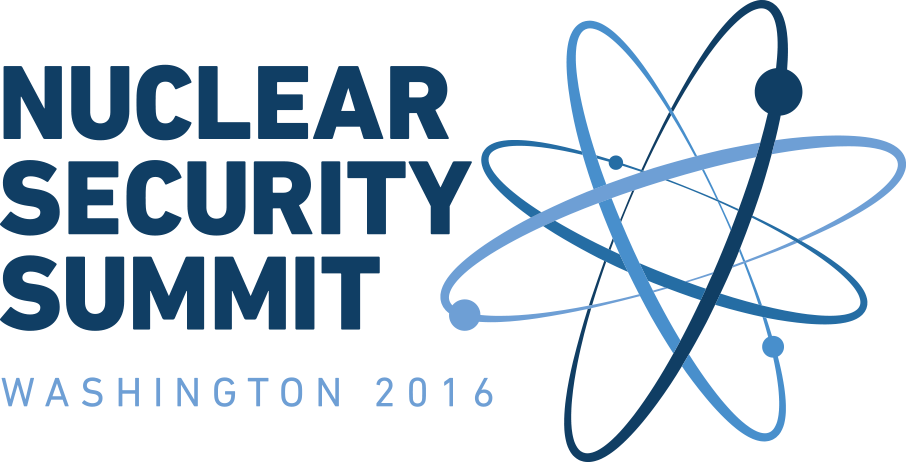 An international summit on nuclear security in Washington enters its second day Friday. Top of the agenda is how to stop terrorist organisations such as the Islamic State group from getting their hands on nuclear material. But how real is the threat?
An international summit on nuclear security in Washington enters its second day Friday. Top of the agenda is how to stop terrorist organisations such as the Islamic State group from getting their hands on nuclear material. But how real is the threat?
In the aftermath of the November 13 terror attacks in Paris, and with the eyes of the world still focused on the bloodshed in the French capital, soldiers in Belgium were sent to guard the country’s nuclear power plants.
Four months later, Belgium found itself in the crosshairs as terrorists killed 32 people in the March 22 suicide bombings in Brussels. Moments after the attacks, the country’s two large-scale nuclear power plants at Tihange and Doel were completely closed off and virtually all employees sent home.
On both occasions, the attackers had targeted the general population, so why the step up in nuclear security?
The answer lies in a mysterious video found in an apartment in Belgium during a police raid as part of the investigation into the Paris attacks and the Franco-Belgian IS group terror network behind them.
The video featured around a dozen hours of surveillance footage of the director of research and development for Belgium’s nuclear programme.
The covertly filmed footage was found in the home of a suspect linked to the Paris attacks immediately setting off alarm bells – there was now evidence to suggest that IS group terrorists were targeting Europe’s nuclear installations.
Dirty bomb
“The terrorists intended to take the physicist’s family hostage to force him to steal radioactive material from his laboratory,” claimed a report in France’s L’Express newspaper, citing police sources.
Their intention would have been to make a so-called “dirty bomb”, where radioactive material is added to conventional explosives to radioactively contaminate an area, the newspaper speculated.
In a sign of how seriously the possibility of such an attack is being taken by the world’s security agencies, leaders from more than 50 countries are currently meeting in Washington for a two-day nuclear security summit with the focus on how to prevent terrorists from obtaining vulnerable atomic materials.
"We've seen over the years that different terrorist organisations have ambitions related to acquiring nuclear materials," said the US Deputy National Security Advisor Ben Rhodes earlier this week.
"We've seen that in their public statements, we've seen that in some cases in their monitoring of nuclear facilities," he added.
Yukiya Amano, director general of the International Atomic Energy Agency (IAEA), has warned that it is "not impossible" that extremists could manage to make a "primitive" nuclear device if they stole enough material.
But a dirty bomb is the far more likely threat, he said in an interview with AFP shortly after the Brussels attacks.
“Dirty bombs will be enough to (drive) any big city in the world into panic," he said. "And the psychological, economic and political implications would be enormous."
‘What’s getting the most attention is the concern about a dirty bomb’
‘Fear of nuclear threat already a victory for terrorism’
Benjamin Hautecouverture, senior fellow at France’s Foundation for Strategic Research and nuclear weapons expert, believes a nuclear weapon in the hands of terrorists is an unlikely scenario.
“They have not been able to and probably never will be able to get their hands on a nuclear weapon,” he told FRANCE 24.
But, the theft of nuclear material for the construction of a dirty bomb is a real threat, he says.
“It is plausible that certain (terrorist) organisations could attack transports of nuclear material or civilian installations and try to steal radioactive material.”
It is important not to “overhype” the danger, however, as “the fear created by the threat is already a small victory” for terrorists, says Hautecouverture.
The challenge for terrorist groups then becomes getting hold of a sufficient amount of nuclear material for an effective bomb, while countries with nuclear facilities need to “protect the material at the source,” says Hautecouverture.
This is not currently being done to a high enough standard, according to the expert, who claims atomic material can currently “be easily found”.
“There is a black market where such material is available coming from central and eastern Europe,” he said.
The challenge for the world leaders meeting in Washington will be to find a way to secure the various stockpiles of nuclear material held around the world under various levels of security.
Russian President Vladimir Putin’s refusal to attend the talks is a major hurdle, however.
According to the International Panel on Fissile Materials, an independent group of arms-control experts, the global stockpile of highly enriched uranium stood at around 1370 tonnes at the end of 2014 – most was in Russia.
